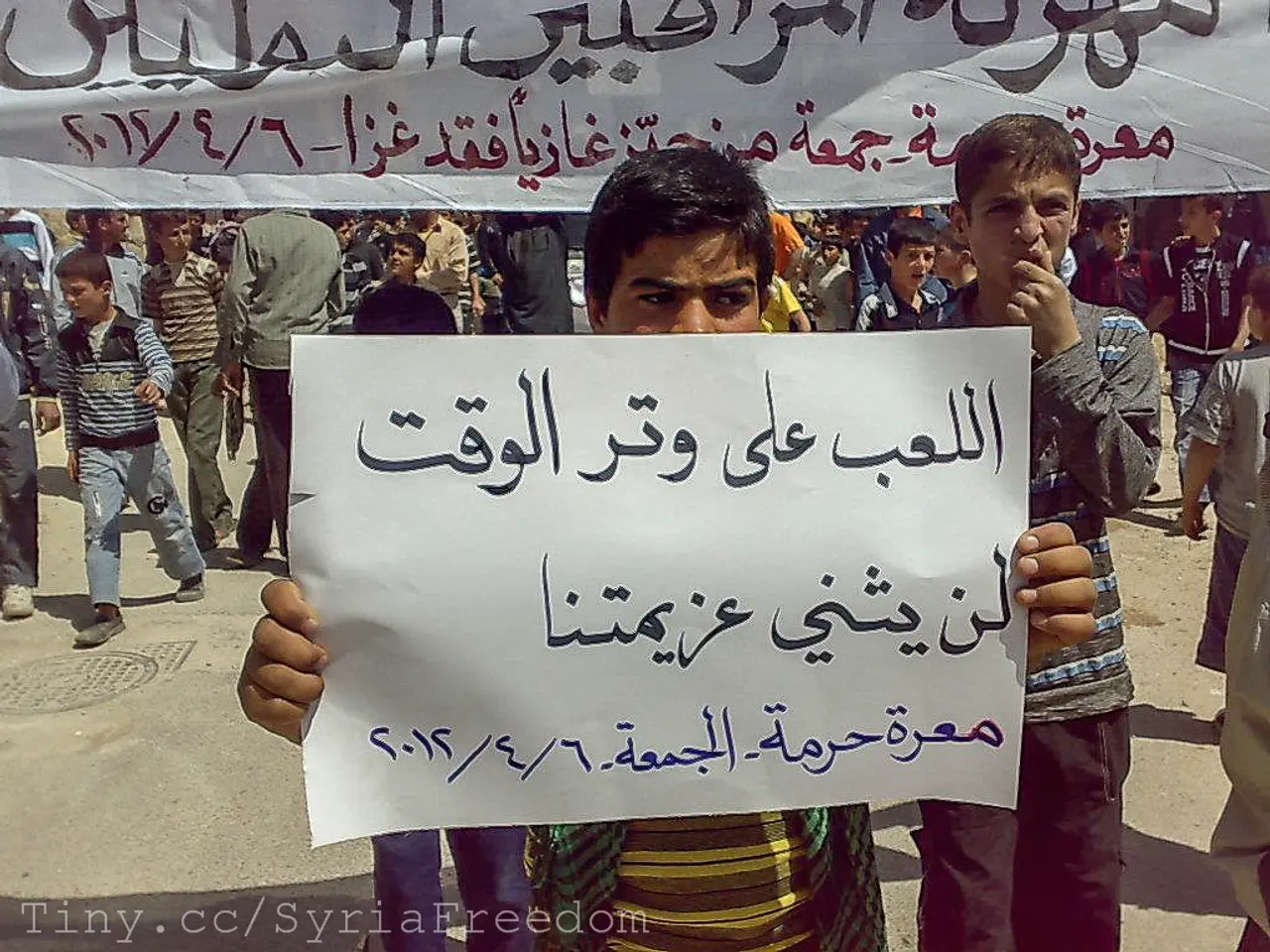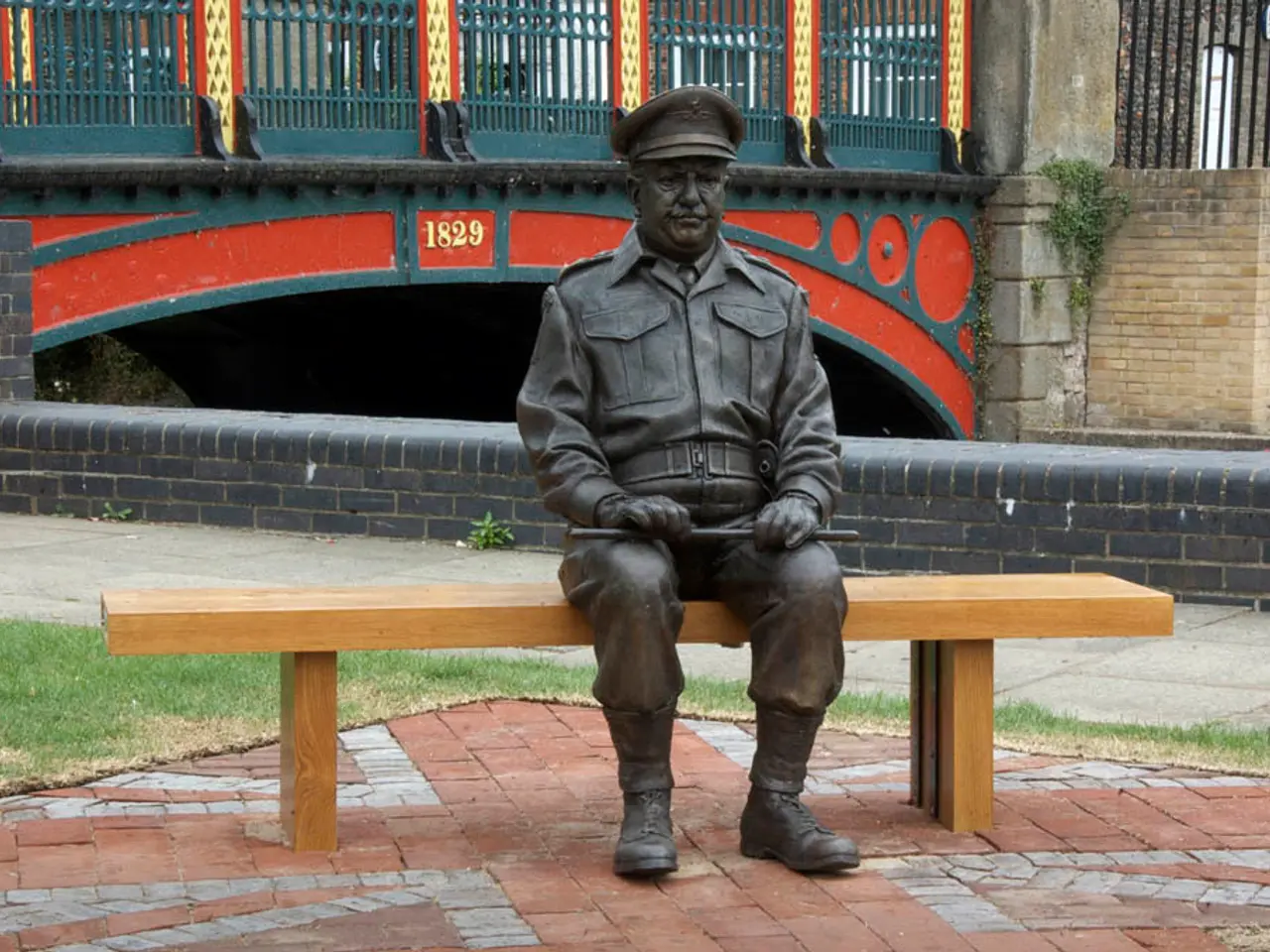Demonstration of protests in Berlin results in 18 detentions - Pro-Palestine protest in Berlin results in 18 detentions
Recent developments in the Middle East conflict have seen significant pro-Palestinian demonstrations in Berlin and other parts of Germany, escalating violence in Gaza, and scrutiny of Israeli military actions.
### Pro-Palestinian Demonstrations in Berlin and Germany
On June 28, 2025, around 300 people gathered in Duisburg to protest against what they perceived as genocide in Gaza and repression targeting Palestinian solidarity activists. The demonstration was disrupted multiple times by the police, who limited slogans and actions such as carrying certain flags, which were later clarified to have been misinterpreted as representing banned groups. This incident highlighted tensions between protestors and authorities over the right to freedom of expression and assembly.
Earlier, on June 21, a mass demonstration at Brandenburg Gate in Berlin demanded an immediate end to Germany’s support for what protesters called genocide, apartheid, and occupation in Palestine. Calls were also made to decriminalize pro-Palestinian organizations and individuals, indicating a strong activist push within Germany for policy changes regarding the conflict.
These restrictions and policing methods have drawn criticism from human rights organizations and the Council of Europe's Commissioner for Human Rights, Michael O’Flaherty. He urged Germany to uphold freedom of expression and peaceful assembly, cautioning against excessive police force, surveillance, and the misuse of antisemitism definitions to suppress legitimate political discourse.
### Gaza Conflict and Israeli Actions
The conflict in Gaza remains severe, with reports of Israeli fire killing many Palestinians, including civilians seeking food aid. These incidents have contributed to the intensified protests in Germany and elsewhere. German officials express concerns about broader geopolitical implications, including the potential for the Middle East conflict to influence international diplomacy and regional security.
### Analysis
The pro-Palestinian demonstrations in Germany are part of a broader societal and political debate over how states should respond to the Israel-Gaza conflict, particularly regarding the balance between security concerns and civil liberties. Police and government restrictions on demonstrations and expression illustrate the challenges European governments face in managing protests that touch on sensitive international conflicts and domestic legal considerations.
International human rights bodies emphasize the need for countries like Germany to protect freedom of expression, avoid repression of minority voices, and distinguish between genuine hate speech and political criticism, underscoring the complex interplay between counter-terrorism measures and democratic rights.
Meanwhile, the ongoing violence in Gaza continues to trigger humanitarian concerns and international calls for ceasefire and negotiations, reflecting the persistent instability in the region and its global ramifications. Talks are ongoing about a ceasefire and hostage release, with a woman at the Berlin demonstration advocating for the release of hostages held by the terrorist organization Hamas in the Gaza Strip. However, the Israeli government denies the genocide accusation in Gaza, and whether Israel's actions constitute genocide is a topic of debate among lawyers and activists.
- The recent pro-Palestinian demonstrations in Berlin and various EC countries, such as the one at Brandenburg Gate on June 21, 2025, indicate a push for modification in their employment policy towards the Israel-Gaza conflict, advocating for decriminalization of pro-Palestinian organizations and individuals.
- The ongoing Gaza conflict and Israeli military actions are subject to scrutiny, not only by human rights organizations but also by governments like Germany, as they weigh the balance between security concerns and civil liberties in formulating their employment policy.







